This is the default title value
This is the default desc value
button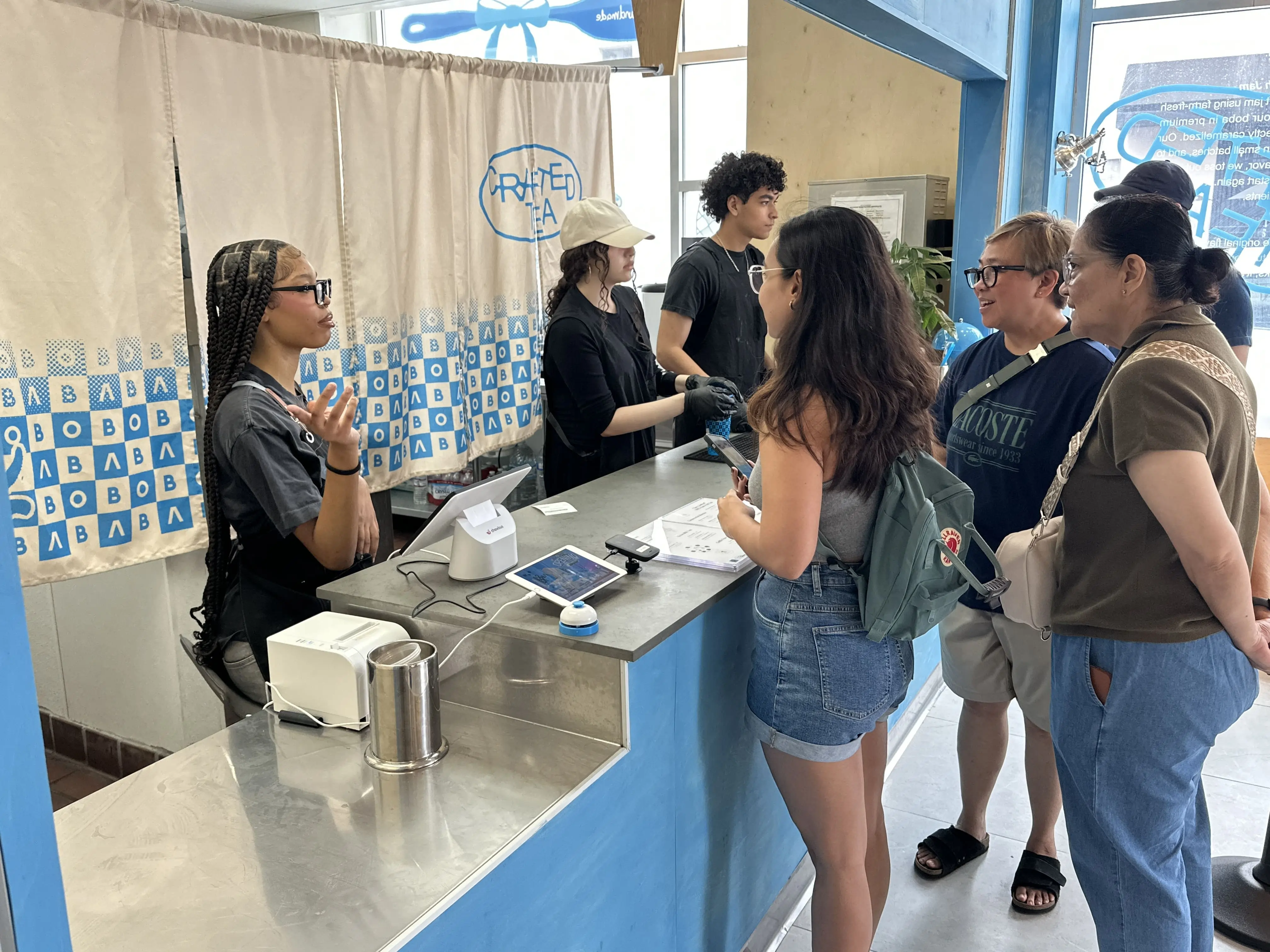
Opening a bubble tea shop sounds exciting—until you start adding up the numbers. How much does it cost to open a boba shop, and what’s the realistic cost to open a bubble tea shop in today’s market?
This guide breaks down everything clearly: startup ranges, major expenses, monthly costs, and ways to save. If you're serious about getting your shop off the ground, you’ll want a full picture of where the money goes and how to spend it wisely.

In the U.S., the cost to open a boba shop typically ranges from $75,000 to $250,000, depending on location, store size, and business model.
Here’s a quick cost overview based on setup types:
These are average figures — your actual costs may vary depending on real estate, labor, and supply costs in your city.
Opening a boba shop takes more than finding a location and serving drinks. To plan your startup budget with confidence, focus on these key areas:
Location affects both your visibility and your monthly costs. Rent varies widely based on city, neighborhood, and square footage.
Here’s a rough range:
Higher rent often brings higher foot traffic, but the monthly commitment adds up quickly. Be realistic about your expected volume before locking into a lease.
Unless you’re taking over a fully-equipped food space, plan for some construction. This includes layout changes, plumbing, flooring, lighting, wall finishes, counters, and customer seating.
Costs typically fall between $20,000 and $80,000, depending on how much work the space needs and your design choices. If you're starting in a blank unit, the cost climbs fast. A former café or frozen yogurt shop may reduce this expense.
Permits and inspections are also part of this phase and can add a few thousand dollars to the total.
You’ll need specialized equipment to operate efficiently and serve consistent drinks. Some of the must-haves include:
For decent quality and commercial-grade reliability, expect to invest $10,000 to $30,000 in equipment. Leasing is an option if you want to reduce your upfront spend.
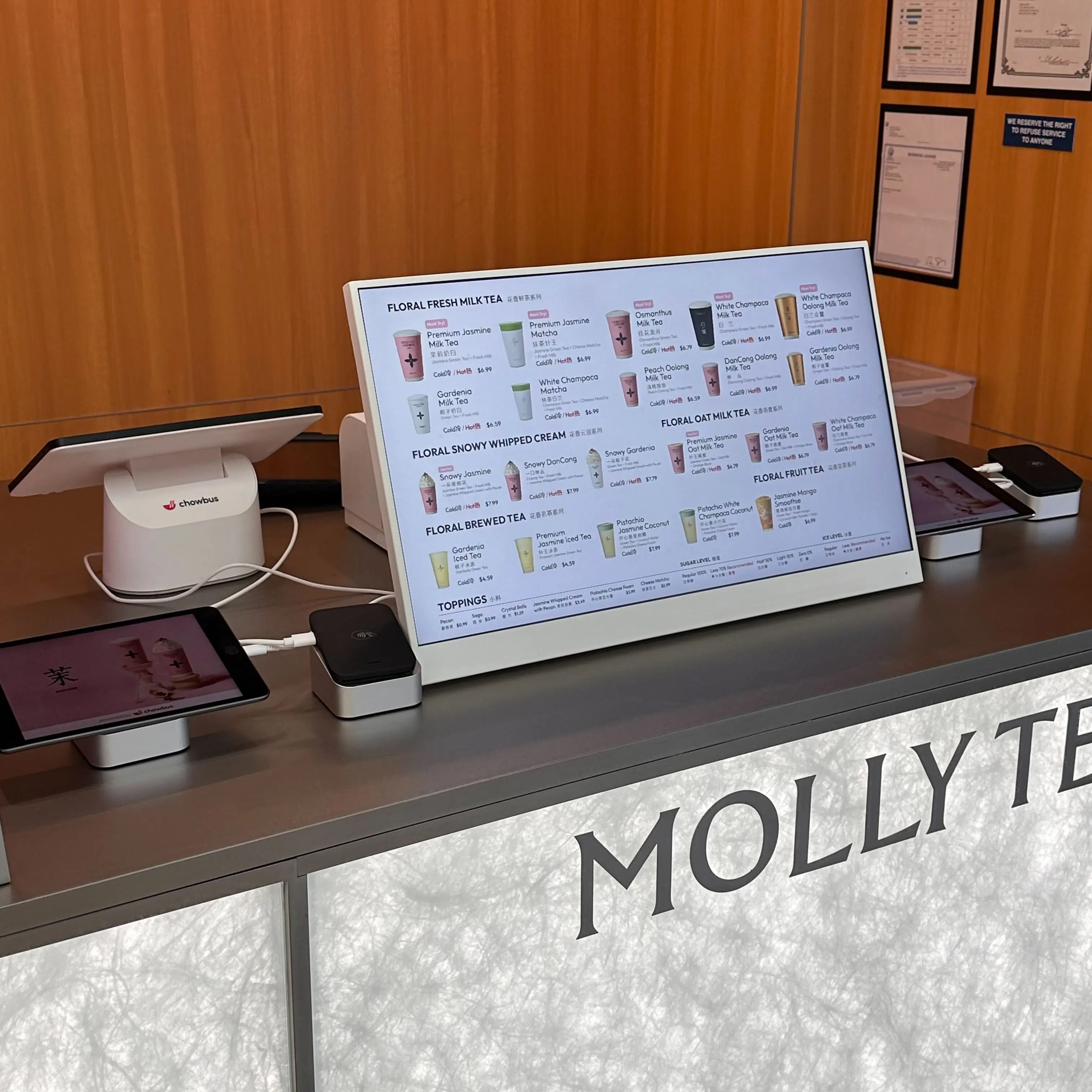
Initial supplies are more than just tea and tapioca pearls. To get your shop ready for launch, you’ll need:
Startup inventory typically runs $5,000 to $8,000, depending on your menu size and supplier terms.
Unless you’re operating solo, you’ll need a few team members to handle prep, drink making, cleaning, and customer service.
Expect to hire at least 2 to 4 part-time or full-time employees to cover peak hours. Training should include basic boba prep, food safety, and operating your POS system.
Initial labor costs (including training wages) can run $2,500 to $7,500 per month based on wages in your area and how many hours you need to cover.
Every city and state has its own rules for operating a food business. Common requirements include:
Plan for $1,000 to $3,000 total to cover paperwork, inspections, and any associated fees. Some locations may also require signage permits or additional local authorizations.
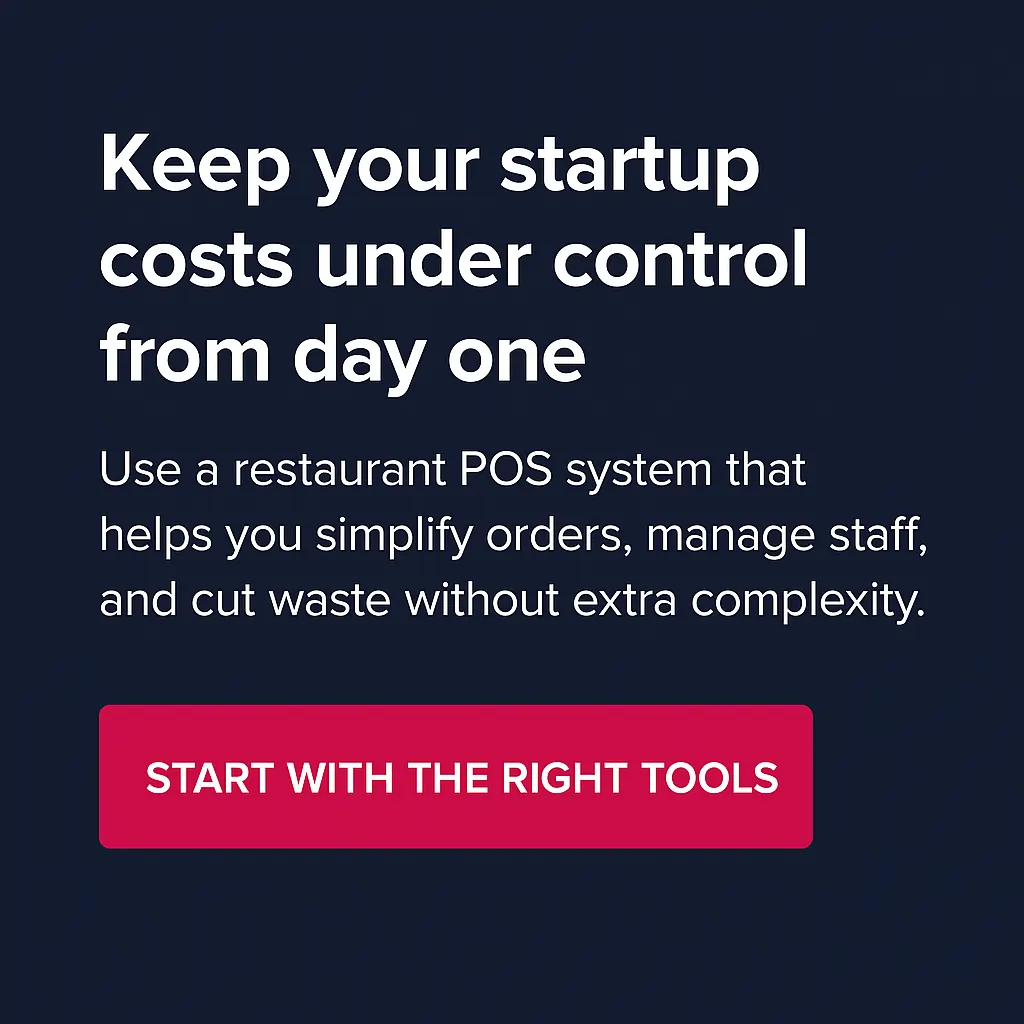
Start-up costs get most of the attention, but your monthly expenses will quickly impact your cash flow if they’re not planned for early.
Marketing and Advertising
Expect to spend $300 to $2,000 per month on social media ads, local promotions, influencer partnerships, and seasonal campaigns. Consistent visibility helps drive foot traffic and build a loyal base.
POS and Software Subscriptions
A reliable point-of-sale system and supporting tools typically run $100 to $300 per month. These help you manage transactions, track sales, and keep service smooth during peak hours.
Maintenance and Repairs
Equipment breaks, signs fade, and sinks clog. Set aside a monthly reserve to handle minor issues before they become costly. There’s no fixed number here, but a buffer of $200 to $500 per month is a smart starting point.
Utilities
Electricity, water, internet, and trash services usually total $500 to $1,500 per month, depending on your location, store size, and hours of operation.
Insurance
General liability, property coverage, and workers’ comp can cost $1,000 to $3,000 annually. Rates vary by state and provider, but staying covered protects your business and keeps you compliant.
These ongoing costs may look smaller on paper, but they add up quickly. Build them into your business plan to avoid running short later. A solid forecast gives you more control and less stress once your shop opens.
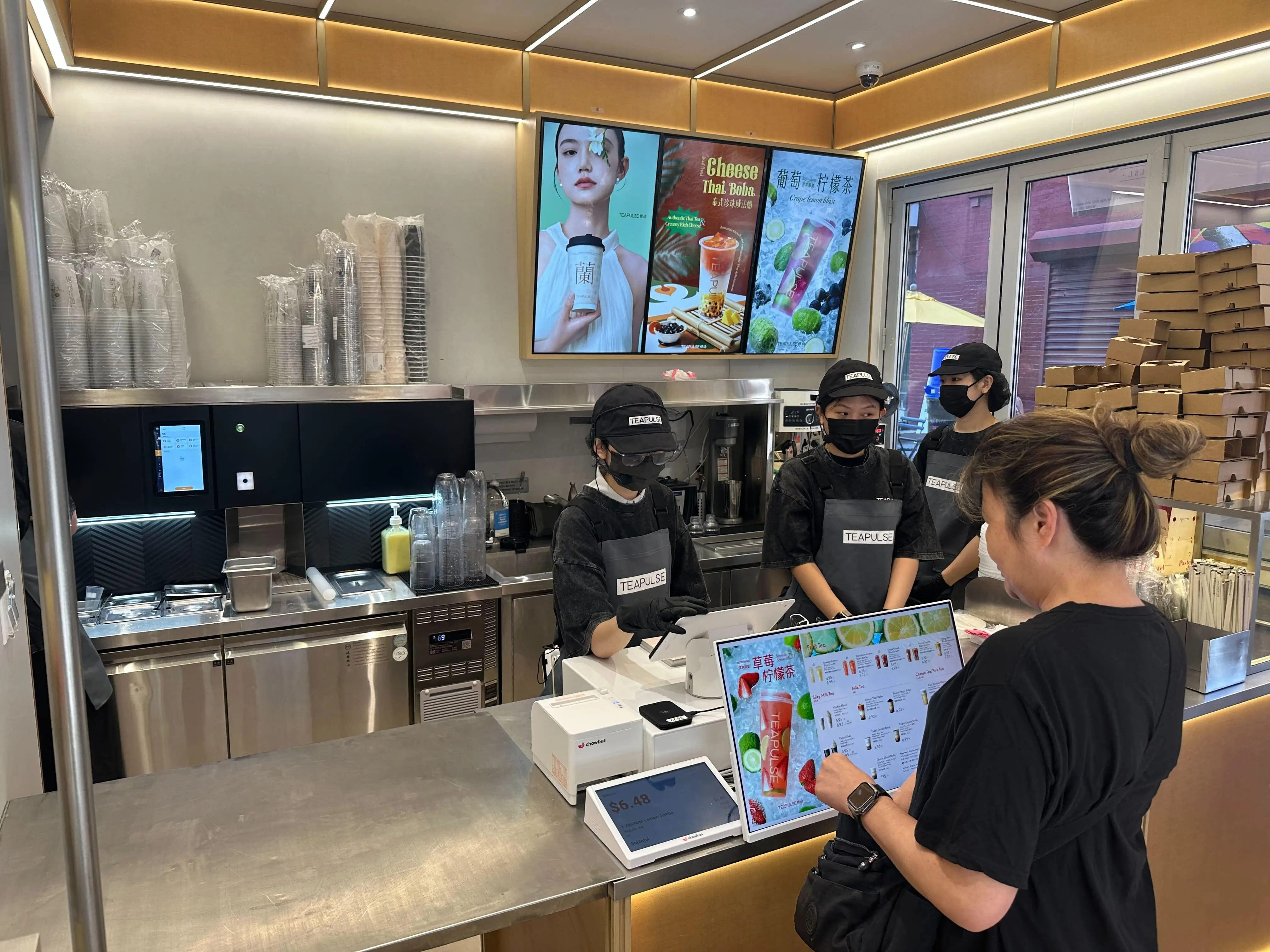
Start small
Launching with a compact setup like a kiosk, food stall, or shared space helps reduce rent, renovation, and staffing costs. It also lets you test demand without committing to a full buildout.
Lease equipment
Instead of buying everything upfront, lease key items like tea brewers, refrigerators, or sealing machines. This lowers your startup costs and gives you flexibility if you need to upgrade later.
Buy second-hand
Gently used furniture, prep tables, sinks, and small appliances are often available through local auctions or restaurant supply resellers. You can cut thousands off your buildout budget without sacrificing functionality.
Use local suppliers or bulk ordering
Sourcing ingredients like tapioca pearls, teas, and sweeteners from nearby distributors can reduce shipping fees and lead times. If local options are limited, buying in bulk from trusted suppliers keeps per-unit costs down.
Partner with co-working kitchens
Shared commercial kitchen spaces let you skip the full renovation and permit process. Many provide hourly or monthly rental options, which can significantly lower overhead during the first few months of operation.
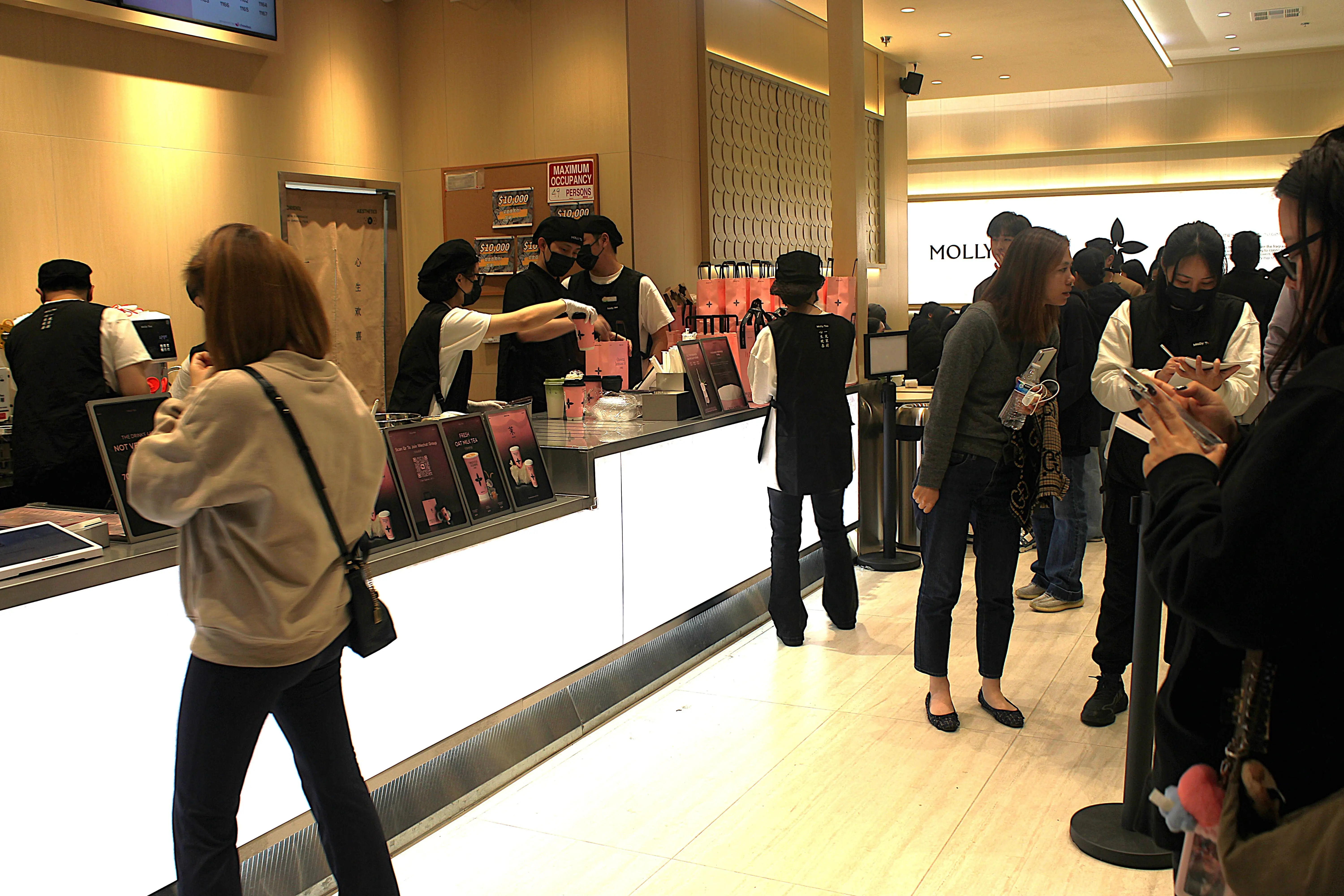
Getting clear on startup costs helps you make smarter decisions, avoid common setbacks, and move forward with confidence. From rent and build-out to equipment and staffing, every dollar should support long-term growth.
Stay flexible, start with a format that fits your budget, and focus on efficient operations from the start. A clear financial plan is the first step toward building a shop that’s both sustainable and profitable.
Chowbus POS is built to support new shop owners with the tools needed to simplify service and drive revenue. From order-taking to customer engagement, our platform gives you control without the extra overhead.
If you're looking for the best POS system for bubble tea shops, we’re here to help you run faster and smarter. We also have boba machine integrations to streamline prep and service.
Book a free demo today and see how Chowbus POS can help you start strong.
Got questions about what it really takes to open a bubble tea shop? Here's a quick breakdown of the most common costs and considerations to help you plan with confidence.
Setting up a boba tea shop in the U.S. typically costs between $75,000 and $250,000. This includes rent, renovations, equipment, supplies, licenses, and staffing. Costs vary based on location, shop size, and setup type (kiosk, storefront, or franchise).
* Kiosks typically start at $70k–$120k. Premium locations/large footprints may exceed $250k.*
A boba franchise in the U.S. typically requires an initial investment of around $125,000 to $500,000.
This includes the franchise fee (often $25,000–$50,000), plus expenses like build‑out, equipment, inventory, and marketing. Costs vary by brand, location, and store size. A few smaller or independent options might start closer to $100,000, but most reputable franchises fall within the $125K–$500K range.
Yes, bubble tea can be a good business to start. It has strong demand, especially among younger consumers, low startup costs compared to full-service restaurants, and flexible models like kiosks or food trucks. Success depends on location, quality, branding, and effective marketing.
Yes, boba tea can be a good investment if you choose the right location, manage costs well, and offer consistent quality. The market continues to grow, especially among younger consumers, and profit margins on beverages are typically high. Like any business, success depends on execution, demand, and ongoing customer engagement.
Want more resources like this?
Check out our blog section for more insights, how-to guides, and updates to help you build and grow your food business.

DISCLAIMER: The cost estimates and figures provided in this blog are for informational purposes only and are based on publicly available data and industry averages. Actual startup and operational costs may vary depending on location, vendor pricing, business model, and other local factors. Always consult with financial and legal professionals before making business decisions or investments.
Recommended Articles: